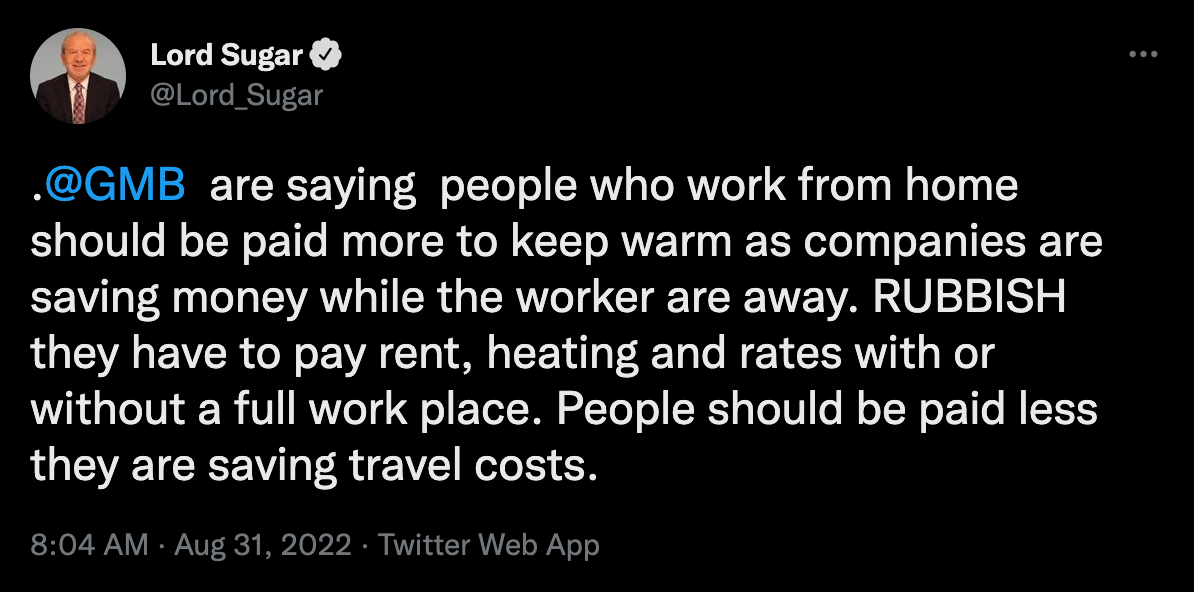
Lord Sugar is attracting crticism for saying people should be “paid less” for working at home.
The Apprentice star and business tycoon responded to a Good Morning Britain segment about how the cost of living crisis will affect those who no longer work in an office following the pandemic.
Sugar, 75, wrote on Wednesday (31 August): “@GMB are saying people who work from home should be paid more to keep warm as companies are saving money while the worker are away. RUBBISH.”
He continued: “They have to pay rent, heating and rates with or without a full work place. People should be paid less they are saving travel costs. [sic]”
Following his post, many called the business tycoon out for his words, and questioned his persistence in criticising those who work from home despite its benefits.
“People should be paid their worth and what their job is worth,” commenter @Crim_sol_PH said, adding: “Certainly should not be paid less because of a lack of commuting.”
@Terryoverall agreed, writing: “Sorry Alan. You are wrong on this. If they’re doing the job, performing well, delivering the required results then pay should be commensurate regardless of location.”
Another commenter, @Tru_Powell, replied: “And what about the energy consumption they have in the home. The cost of living is rising and you say people should be paid less. Are you ok mate?”
User @ow_746 added: “Absolutely not, the saved travel costs actually now go towards groceries, fuel, energy etc.”
Another questioned his managerial skills, writing: “You sound like a boss employer who looks after his staff with that attitude. Do you not understand losing a 1/4 of your wages just to fuel your home could leave people homeless as they can’t afford it whilst trying to feed and clothe their kids? It’s 2022 not 1822.”

It was announced last week by Ofgem that the energy price cap had risen, with the average household energy bill risingto £3,549 in October. This figure is an 80 per cent rise on the current cap of £1,971.
Ofgem has also warned that energy prices could get “significantly worse” in 2023, with one separate analyst predicting the January price cap could jump to £5,386.







